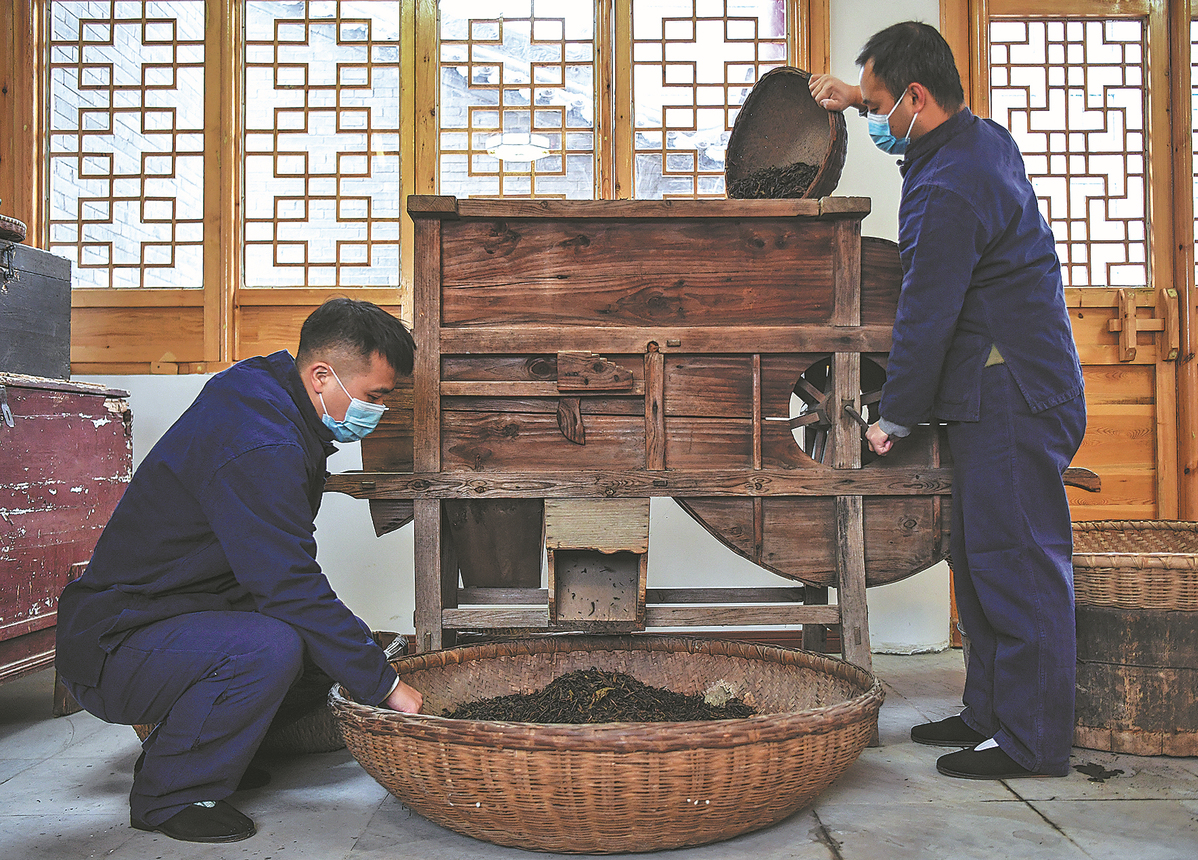

In a tea plantation in Qimen County, East China's Anhui province, Maksim Ruban scrutinizes the collected fresh tea leaves as local farmers usher in their annual tea-picking season.
The 25-year-old Russian runs a tea business in Russia's St. Petersburg, which imports tea from China regularly. In addition to offline sales, his company has an online store selling its products across Russia and other European countries.
"We sell about three tonnes of tea every month, all imported from China," Ruban said.
At an early age, Ruban was fascinated by Chinese culture when he watched relevant programs on television. His interest has since become an obsession with the profound Chinese tea culture. The then 19-year-old lad started his own tea company, specializing in selling tea and teaware.
To find suitable tea flavors for Russians and more trading partners, the young man began to shuttle between Russia and China almost every year. This year, he visited multiple Chinese cities with his wife, Daria Ruban.
"Our first stop was Chengdu (of Sichuan province), and then Kunming and Xishuangbanna of Yunnan province and Hefei and Huangshan of Anhui Province. We've been in China for a month and visited many tea plantations and local tea companies," said Daria Ruban, adding they plan to visit Chaozhou city in South China's Guangdong province as their final leg of the tea journey.
Qimen in Huangshan city was a must-see on their journey. The county is famed as home to the world-renowned Keemun black tea, awarded the gold medal at the 1915 World's Fair held in Panama. Featuring its intense aroma, the tea has a history of more than 100 years.
Keemun black tea, together with Darjeeling black tea from India and Ceylon black tea from Sri Lanka, are known as the world's top three high-fragrance black tea varieties.